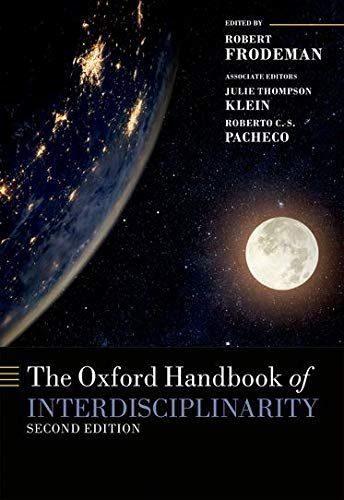
The Oxford Handbook of Interdisciplinarity
Interdisciplinarity has become as important outside academia as within. Academics, policy makers, and the general public seek insights to help organize the vast amounts of knowledge being produced, both within research and at all levels of education. The second edition of The Oxford Handbook of Interdisciplinarity offers a thorough update of this major reference work, summarizing the latest advances within the field of inter- and transdisciplinarity. The collection is distinguished by its breadth of coverage, with chapters written by leading experts from multiple networks and organizations. The volume is edited by respected interdisciplinary scholars and supported by a prestigious advisory board to ensure the highest quality and breadth of coverage. The Oxford Handbook of Interdisciplinarity provides a synoptic overview of the current state of interdisciplinary research, education, administration and management, and of problem solving-knowledge that spans the disciplines and interdisciplinary fields. The volume negotiates the space between the academic community and society at large. Offering the most broad-based account of inter- and transdisciplinarity to date, its 47 chapters provide a snapshot of the state of knowledge integration as interdisciplinarity approaches its century mark. This second edition expands its coverage to discuss the emergence of new fields, the increase of interdisciplinary approaches within traditional disciplines and professions, new integrative approaches to education and training, the widening international presence of interdisciplinarity, its increased support in funding agencies and science-policy bodies, and the formation of several new international associations associated with interdisciplinarity. This reference book will be a valuable addition to academic libraries worldwide, important reading for members of the sciences, social sciences, and humanities engaged in interdisciplinary research and education, and helpful for administrators and policy makers seeking to improve the use of knowledge in society.